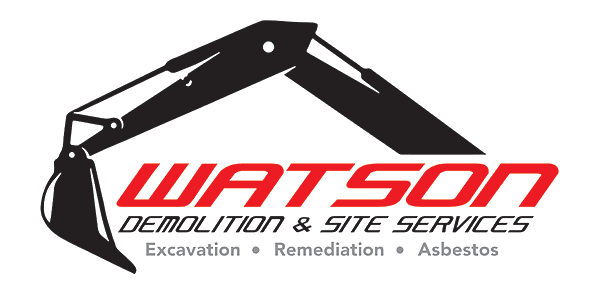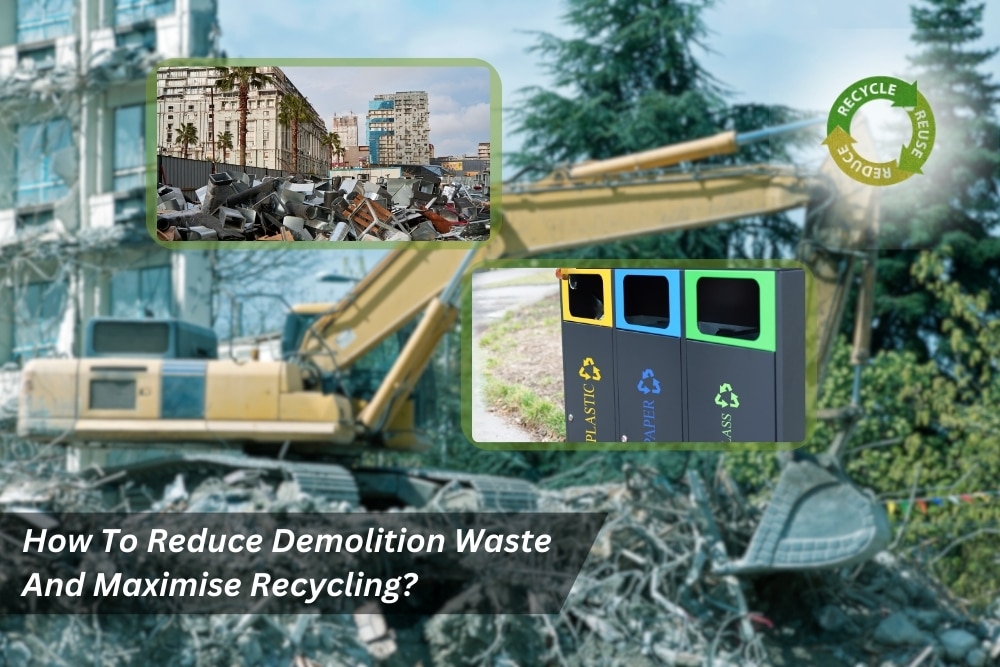Demolition projects are often associated with heaps of debris and waste, contributing to environmental concerns and escalating disposal costs. In today’s conscientious world, there is a growing imperative to reduce waste and maximise reuse in demolitions. This not only benefits the environment but also makes economic sense. In this article, we explore the benefits of minimising demolition waste, strategies to identify reusable materials, best practices for recycling, ways to find markets for recycled materials, challenges in the process, and effective solutions to overcome them.
What are the benefits of reducing demolition waste?
The advantages of embracing demolition waste recycling reach beyond environmental concerns. Incorporating sustainable practices in demolitions not only contributes to environmental benefits but also brings about economic advantages, supporting the principles of a circular economy.
- Cost savings: Reducing waste in demolitions translates to lower disposal costs. By salvaging and reusing materials, expenses associated with landfill fees and waste removal are significantly diminished.
- Resource conservation: Minimising demolition waste means less reliance on raw materials for new construction. This helps preserve natural resources and reduces the environmental impact associated with extracting and processing raw materials.
- Positive public perception: Adopting eco-friendly practices enhances your organisation’s image. Clients, stakeholders, and the general public increasingly value businesses that prioritise sustainability, potentially attracting more opportunities and positive attention.
- Compliance with regulations: Many regions have strict regulations regarding waste disposal and environmental impact. By reducing demolition waste, you not only contribute to sustainability but also comply with regulatory requirements.
How can you identify reusable materials in a demolition project?
Identifying reusable materials in a demolition project requires a keen eye and systematic assessment. Here are practical steps to discern what can be salvaged and repurposed.
- Material audit: Conduct a thorough audit to categorise materials. Identify items such as timber, metal, concrete, and fixtures that can be salvaged for reuse.
- Structural assessment: Evaluate the condition of building components. Materials in good condition, like intact bricks or undamaged lumber, are prime candidates for reuse.
- Collaborate with salvage companies: Partnering with salvage companies can be beneficial. They have the expertise to recognise valuable materials and can assist in their removal for reuse.
- Engage demolition crews: Involve demolition crews in the identification process. They often have insights into the condition and potential reuse of materials encountered during the project.
What are the best practices for demolition waste recycling?
Efficient waste handling in construction and demolition is pivotal for the success of demolition waste recycling. The process revolves around the transformation of materials into valuable resources, and adopting best practices is essential to achieve maximum efficiency and environmental benefits.
- Segregation at the source: Begin recycling efforts at the demolition site by segregating materials. This facilitates the efficient recycling of diverse materials, such as concrete, metal, wood, and glass.
- On-site processing: Establish on-site processing facilities to crush concrete and sort materials. This minimises transportation costs and energy consumption associated with transporting bulk materials to off-site recycling facilities.
- Collaborate with recycling facilities: Partner with reputable recycling facilities equipped to handle various materials. Establishing relationships with these facilities ensures that your recycled materials are processed and reintroduced into the market effectively.
- Education and training: Train demolition crews on the importance of recycling and the proper methods for segregating materials. A well-informed team contributes significantly to the success of recycling initiatives.
How can you find markets for recycled demolition materials?
Finding markets for recycled demolition materials is crucial to closing the loop and ensuring that recycled materials are utilised in new construction projects.
- Research local markets: Identify local markets that demand recycled materials. This could include construction companies, landscaping businesses, or manufacturers looking for raw materials.
- Networking: Establish connections with industry stakeholders, attend trade fairs, and join relevant associations. Networking enhances visibility and increases the likelihood of finding markets for recycled materials.
- Online platforms: Utilise online platforms and directories that connect sellers of recycled materials with potential buyers. These platforms provide a convenient way to showcase available materials and reach a broader audience.
- Collaborate with green building initiatives: Many green building initiatives promote the use of recycled materials. Partnering with such initiatives can open doors to markets specifically seeking sustainable construction materials.
What are some of the challenges of reducing demolition waste?
While the benefits of reducing demolition waste are evident, the process comes with its own set of challenges that need addressing.
- Contamination of materials: Demolition sites often contain mixed materials, and contamination can compromise the recyclability of certain items. Efficient sorting processes are essential to mitigate this challenge.
- Lack of awareness: Some stakeholders may be unaware of the benefits of recycling demolition materials. Educating and raising awareness among contractors, clients, and the public is essential for widespread adoption.
- Logistical challenges: Transporting materials to recycling facilities can be logistically challenging, particularly in large-scale projects. Strategically located recycling centres and optimised transportation routes can alleviate this challenge.
- Market demand fluctuations: The demand for recycled materials can fluctuate, impacting their market value. Diversifying markets and collaborating with a range of industries can help mitigate the effects of market fluctuations.
How can we overcome the challenges of reducing demolition waste?
Overcoming the challenges associated with reducing demolition waste requires a multifaceted approach involving collaboration, education, and innovation.
- Invest in technology: Embrace technological solutions, such as advanced sorting equipment and on-site processing machinery, to enhance the efficiency of material identification and recycling.
- Educational programs: Implement educational programs for all stakeholders involved in demolition projects. This includes contractors, demolition crews, clients, and the public. Increasing awareness about the benefits of reducing demolition waste fosters a culture of sustainability.
- Strategic partnerships: Forge strategic partnerships with recycling facilities, salvage companies, and industry associations. Collaborative efforts streamline the recycling process and facilitate the identification of markets for recycled materials.
- Government incentives: Advocate for government incentives that encourage sustainable demolition practices. Tax incentives, grants, or subsidies can motivate businesses to invest in recycling infrastructure and practices.
Conclusion
Reducing waste and maximising reuse in demolitions is not only a responsible environmental choice but also a strategic business decision. The benefits extend from cost savings to positive public perception, making it imperative for the construction industry to embrace sustainable practices. By identifying reusable materials, implementing best recycling practices, finding markets for recycled materials, and addressing challenges through innovative solutions, the construction sector can contribute significantly to a more sustainable and circular economy. Through collaborative efforts and a commitment to responsible demolition practices, we can pave the way for a greener and more environmentally friendly future in the construction industry.
Take the Lead in Sustainable Demolition with Watson Demolition & Site Services
At Watson Demolition & Site Services, we’re passionate about promoting sustainable demolition practices and helping our clients reduce their environmental impact. We understand the importance of responsible waste management and are committed to providing our clients with the expertise and resources they need to achieve their sustainability goals.
By partnering with Watson Demolition & Site Services, you can:
- Reduce your environmental impact: We can help you minimise your project’s waste footprint and contribute to a more sustainable future.
- Save money: By reusing and recycling materials, you can reduce your project costs.
- Comply with regulations: We are committed to compliance with all relevant environmental regulations.
- Enhance your reputation: By implementing sustainable practices, you can demonstrate your commitment to environmental stewardship and social responsibility.
Contact Watson Demolition & Site Services today! We would be happy to discuss your project and provide you with a free consultation. Together, we can build a more sustainable future for our planet.



